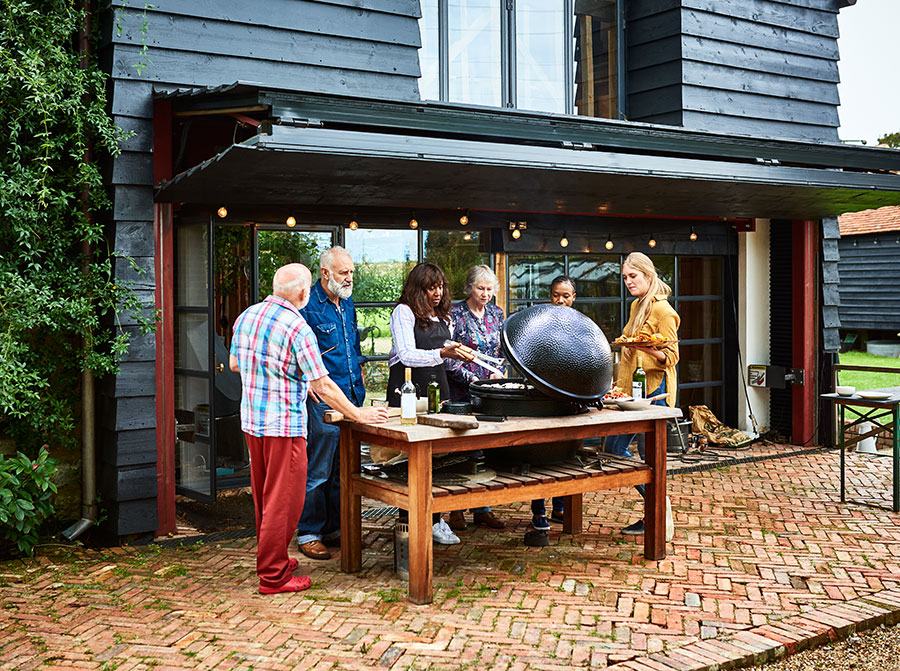3 Tips for Managing Cottage Guests

Photo: 10'000 Hours/Getty Images
This article was originally published in May, 2016. In addition to these tips, as the country reopens amid the global pandemic, please adhere to all local social distancing requirements.
If you have a cottage, you’ve probably encountered a situation or two where you’ve felt your hospitality start to become a little strained. Here are some tips for managing cottage traffic and setting up an experience everyone can enjoy when you do have guests.
Set Boundaries
The cottage tradition is strong in Canada, particularly around urban centres where people feel the need to get out into cottage country over the summer. Sometimes friends and family can unwittingly give the impression that you owe them a retreat. Remember that this is your cottage and you do have the right to decide who will visit, and when. It’s just fine to say “We always enjoy your company, but a visit is just not possible this year.”
If you find yourself booked solid with family and friends visiting you at the cottage and missing the quieter experience, block out some special times and create a traditional week or weekend (or several) that is off limits to visitors — every year. This way you’ll only have to say no for that time once.
Another approach is to reverse it and have a traditional guest week and leave the rest as family-only time. This approach can mean a great event period and then peace for the rest of the summer — but it does depend on having room for everyone to bunk down.
If you do go ahead with having guests, there are ways to make the visit smoother.
Set the Stage for Success
Let your guests know what to expect before they trek up to your vacation home. If they should bring anything like bottled water, be clear up front. And also let them know what kind of an experience you usually enjoy, whether that’s a lot of water sports, daily fishing, or just lounging around. Some people equate cottages with drinking, for example, so if you prefer not to deal with inebriated guests you may want to mention that you usually don’t drink much up at the lake.
Laying in a few basic supplies can make visits a lot smoother. Visit local garage sales to pick up a variety of board and word games, and a few second-hand books of various types, for rainy day amusement. If you expect children as visitors, some craft supplies can also go a long way towards taming the “I’m bored” blues. And visit the local town or area tourist information centre to pick up some pamphlets for local attractions and events (which can also be a way to encourage guests to go out and leave you with a few hours to be at peace or regroup). Extra towels and an extra clothes line (if low-lying branches are not available) can also be a big help.
Make cottage rules clear to everyone by printing up signs and posting them in logical locations. Guests may not be aware of all the little quirks of your local plumbing, or the way the boathouse is organized, and even if you tell them when they arrive they may not be able to absorb all the information at once. Having things written out clearly can help a lot.
It can also help a lot to get everyone involved in cottage maintenance. You can subtly guide your guests into helping by playfully setting out a roster at the beginning of a visit. And for family where you can be a bit more forward, put older grandchildren or grown children in charge of various aspects of cottage life — ask one to look after lunches and another to take charge of airing out blankets.
Don’t “Put the Big Pot in the Little One”
Going all-out now and then is fine, but sometimes it can be tiring to try to make a cottage experience special for guest after guest. There’s no real need to provide fine dining or endless waterfront activities for everyone. And remember: your old family standby meals may be new and exciting to others, even if they’re based on a few cans of beans.
Lower your expectations a little and relax — because that’s really what a cottage trip is all about.
RELATED:
No Cottage? No Problem! Tips For an At-Home Barbecue
Rising Food Costs Getting You Down? 8 Tips for Entertaining on a Budget